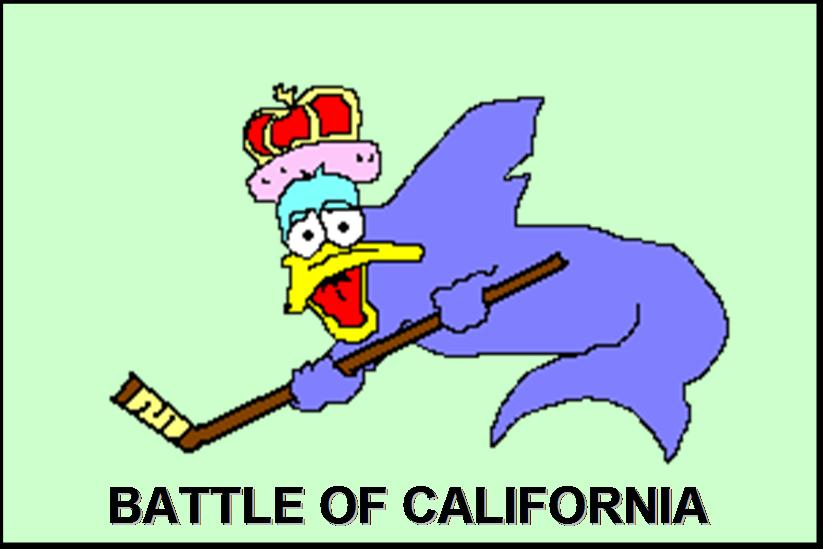On protecting owners from themselves
 Wow. Quite honestly I am a bit mystified by all the dollars being thrown around yesterday, particularly towards defensemen and particularly by some teams that are already somewhat pressured by the nearness of the salary cap ceiling. Also, the lengths of these deals strikes me as an expensive commitment for teams to make.
Wow. Quite honestly I am a bit mystified by all the dollars being thrown around yesterday, particularly towards defensemen and particularly by some teams that are already somewhat pressured by the nearness of the salary cap ceiling. Also, the lengths of these deals strikes me as an expensive commitment for teams to make.
Way to stay out of this mess, Burke. Thanks for remembering that the salary cap is not a "race to spend $44 million", a mantra some teams have apparently modeled their offseason around.
But with new mechanisms to protect owners from such stupidity, what does the money being spent really mean? Let's follow some reasoning:
- Next year's salary cap ($44 M) and floor ($28 M) imply that the NHL projects revenues that would sustain total salaries if on average, teams spent $36 M apiece on salaries.
- Inasmuch as teams collectively decide to spend more or less than this (without affecting revenue), then a mechanism will kick into place (I think in players' escrow management) to correct this over- or under-spending. Remember, salary costs are to be locked in at 54% of revenues.
- What we saw yesterday suggests to me that really the issue will be teams overspending rather than underspending the projected salary totals. This looks to be even more likely over the next couple of years, as teams have already committed to large salary commitments for the next 3 years, especially. These commitments are likely to be mirrored for even non-spending teams, through things like arbitration and player comparables.
- So let's say, for argument's sake, that next year teams average a team salary of $40 M, roughly 10% higher than the cap median. Revenues, meanwhile, do not change from what had been projected. What I think happens then is that players each end up getting only 90% of their negotiated contract amount. A million-dollar player gets $900,000.
- So owners collectively are protected, then, if my understanding of the mechanics is somewhat close to true. In a sense, they are spending 'Monopoly money', and at the end of the year, a conversion will be done to convert 'Monopoly money' into U.S. dollars.
If this is true (and why oh why did Tom Benjamin decide now is a good time to stop blogging?), then here's my take:
- Outrageous spending contracts somewhat make sense for an individual owner provided that your own individual stupidity is likely to be mirrored by 29 other clubs. In other words, if everyone else overspends, it makes it easier for a rational owner to also overspend at times.
- Still, even though overall spending will be controlled, I don't think it is a particularly good strategy for owners to lock up so much cap obligation on so few players, especially for future years. Regardless of what the actual dollar amount you spend ends up being, you still tie up your ability to smartly fill your roster in the future.
- I'm not sure it makes sense to sign anyone now on July 1st. If you get a UFA that early, it means you have likely overspent and overcommitted to do so.
- Teams, by and large, are idiots, it appears. A smart GM (let's say Burke for now I think is acting like one) can make a much more complete roster with patience and cap space than a hasty GM.
- It probably will take the league some 4-5 years to wisen up, as it continues to be run by dinosaurs.
So it's a muddy issue. Now that the CBA allows crazy spending, some teams have gone apeshit, and really, money-wise they won't get significantly burned. However, I don't think 30 teams are all going equally stupid, and we may see this discrepancy bite spenders in the ass over the next few years.
It may be that good teams will not necessarily be the ones that have the best individual players, but rather the ones with better cap skills and less top-heavy salary structures.
Maybe Burke really gets this, or maybe he's just unlucky with UFAs and kicking himself today. I'm hoping that he continues to let other teams spend their brains out and consoles them later by sharing his playoff revenues with them.
Yay for stupid owners and GMs! God, it might be tougher to build a good team in a league with 30 rational managers.









No comments:
Post a Comment